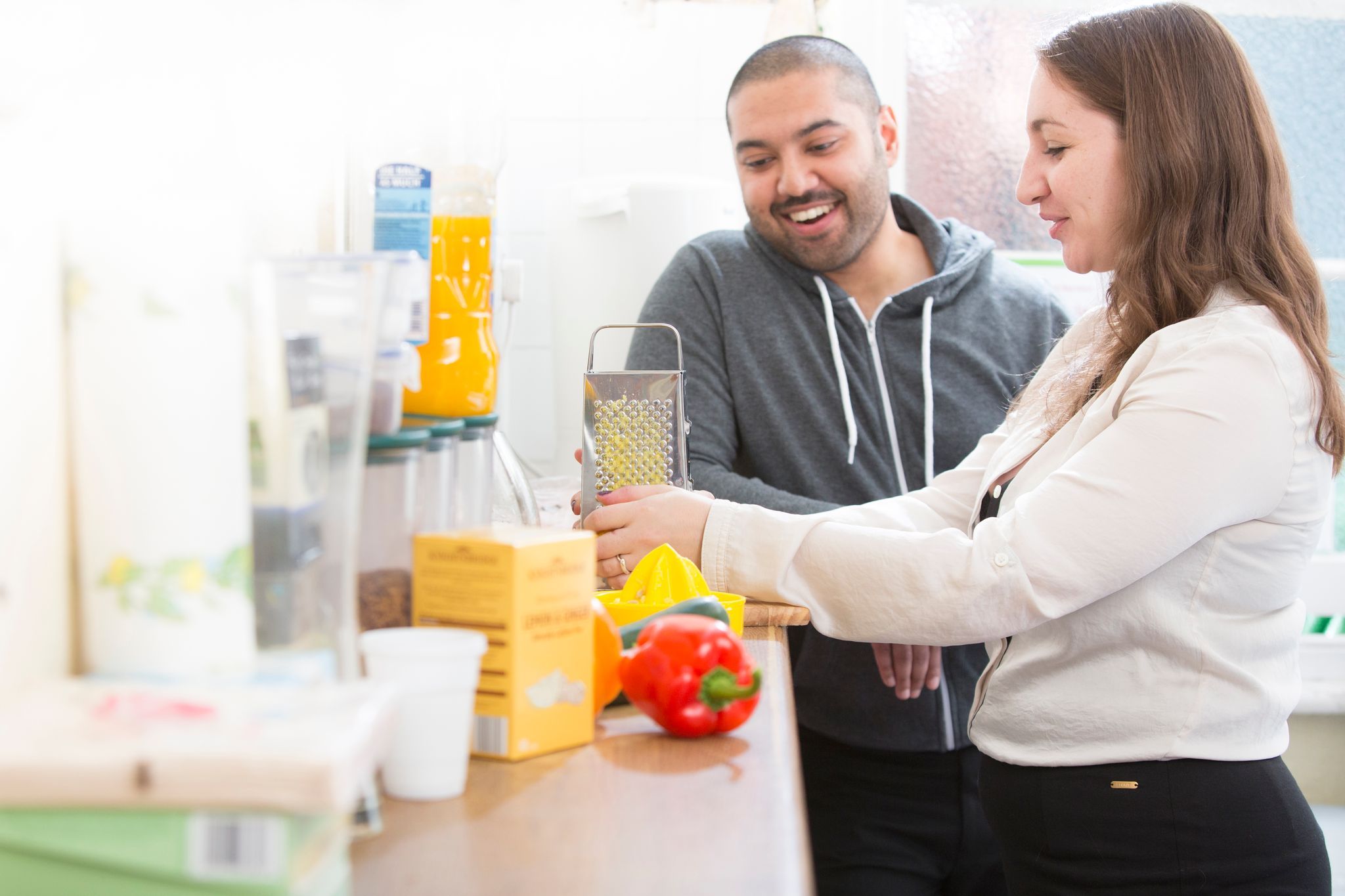How can I support a young person who is struggling with their mental health?
Many people experiencing a mental health problem will speak to friends and family before they speak to a health professional, so the support you offer can be really valuable. It can be hard to know how to approach someone you are worried about, or the best things to say if they approach you themselves.
Listening to a young person who needs to talk
If a young person decides to open up to you, you may feel a lot of pressure to immediately solve the problem, but sometimes simply giving someone space to talk, and listening to how they’re feeling, can be really helpful in itself. Try using this ACTIVE listening acronym to help you:
Ask Twice – we all have the tendency to answer ‘How are you?’ with ‘Fine’. If you think someone is struggling with their mental health, ask them again when you are in a private and safe space.
Communicate and listen without judgement
Tell them you are there for them, whether now or in the future
Inform and give support, but don’t problem-solve. Often just listening is the best thing you can do to help someone who is struggling.
Verify next steps – would they like you to take any action, or just be ready to talk when they need to?
Encourage the person to seek support – whether it be from charities/helplines, another trusted adult or friend, or their GP
If you are still unsure, listen to our young volunteers with lived experience of mental health difficulties talk about what helped and didn’t help them when talking to friends and family.
What can I do if someone doesn’t want my help?
If you feel that someone you care about is clearly struggling but can’t or won’t reach out for help, and won’t accept any help you offer, it’s understandable to feel frustrated, distressed and powerless. But it’s important to accept that they are an individual, and that there are always limits to what you can do to support another person.
You can:
- Be patient. You won’t always know the full story, and there may be reasons why they are finding it difficult to ask for help.
- Offer emotional support and reassurance. Let them know you care about them and you’ll be there if they change their mind.
- Inform them how to seek help when they’re ready (for example, you could show them our pages on talking to your GP and what might happen at the appointment).
- Look after yourself, and make sure you don’t become unwell yourself.
What can I do if it’s an emergency?
There may be times when your friend or family member needs to seek help more urgently, such as if they:
- have harmed themselves and need medical attention
- are having suicidal feelings, and feel they may act on them
- are putting themselves or someone else at immediate, serious risk of harm.
If they are not safe by themselves right now
Stay with them and help them call 999 for an ambulance, if you feel able to do so. Or you could help them get to A&E. They may appreciate it if you can wait with them until they can see a doctor.
If they can keep themselves safe for a little while
You can get quick medical advice by contacting NHS 111 in England, or you could help them make an emergency GP appointment to see a doctor soon.
You can also encourage them to call Samaritans on 116 123 to talk to someone, 24 hours a day. Or you could suggest they try another helpline or listening service such as:
- The Mix. If you’re under 25, you can call The Mix on 0808 808 4994 (Sunday-Friday 2pm–11pm)
- Nightline. If you’re a student, you can look on the Nightline website to see if your university or college offers a night-time listening service. Nightline phone operators are all students too.
- Switchboard. If you identify as gay, lesbian, bisexual or transgender, you can call Switchboard on 0300 330 0630 (10am–10pm every day), email chris@switchboard.lgbt or use their webchat service. Phone operators all identify as LGBT+.
- Papyrus HOPELINEUK. If you’re under 35 and struggling with suicidal feelings, or concerned about a young person who might be struggling, you can call Papyrus HOPELINEUK on 0800 068 4141 (weekdays 10am-10pm, weekends 2pm-10pm and bank holidays 2pm–10pm), email pat@papyrus-uk.org or text 07786 209 697.
For a guide to local and national young people’s services and how to access them:
Signposting guide for young people’s services
Looking after yourself
Most importantly, you can only do your best to support the wellbeing of others if you are also looking after your own wellbeing. Find more support and resources for parents and carers here:

